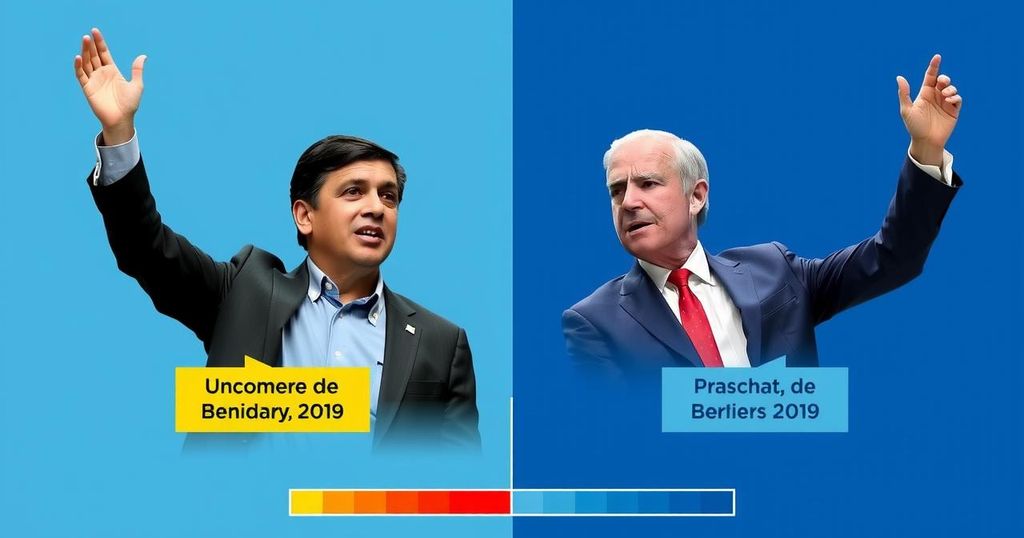Uruguay’s Presidential Runoff: A Dead Heat Between Delgado and Orsi

Uruguayans will vote in a tight presidential runoff, with Álvaro Delgado of the National Party facing Yamandú Orsi of the Broad Front, following a first round where they failed to secure a majority. The election has sparked voter indecision amid concerns over crime and economic policy, without the populist sentiment seen in other nations. The outcome may significantly impact future governance and social reforms in the country.
Uruguay is preparing for a high-stakes presidential runoff on Sunday as the conservative governing party and the left-leaning coalition contend for the presidency, following a first round in which neither secured a majority. The race has intensified between Álvaro Delgado of the National Party and Yamandú Orsi of the Broad Front, a coalition that led the country for 15 years until the 2019 victory of the center-right. The first round indicated a surprising division, with Orsi’s coalition capturing 44% of the vote compared to Delgado’s 27%, although the broader coalition of conservative parties rallied enough support to give Delgado a competitive edge.
The election reflects broader sentiments among voters, with issues of taxation and social spending taking center stage. Analysts note that neither candidate has ignited the same fervent anti-establishment sentiment seen in other nations. “The question of whether Frente Amplio raises taxes is not an existential question,” stated Nicolás Saldías from the Economist Intelligence Unit, highlighting the relative stability of democratic discourse in Uruguay.
Moreover, both Delgado and Orsi aim to address rising concerns over crime in a nation previously known for its stability. Delgado, a seasoned politician, pledges to continue the policies of President Lacalle Pou while aligning with his market-friendly agenda. Orsi, inspired by former President Mujica, advocates for a fresh approach to leftist governance, emphasizing tax incentives for investment and potential social security reforms.
Despite recent corruption scandals within the government, support for the incumbent administration remains solid, bolstered by a projected economic growth of 3.2% this year as reported by the International Monetary Fund. As Uruguay approaches this critical election, citizens are evidently torn between two directions for the nation’s future.
The current electoral scenario in Uruguay comes after a period of considerable political activity and reform. The country has a history of leftist governance, culminating in significant legislative changes, including the legalization of abortion and same-sex marriage, alongside the sale of marijuana. The shifting political landscape, with the rise of the center-right under President Lacalle Pou, has set the stage for a competitive runoff between the left-leaning Broad Front and the conservative National Party. This election stands out due to its relative lack of populist rhetoric that often characterizes contemporary elections across the globe.
In conclusion, the upcoming presidential runoff in Uruguay pits Álvaro Delgado of the National Party against Yamandú Orsi of the Broad Front, in a closely contested election reflecting voter indecision amid significant socio-economic discussions. The election showcases Uruguay’s robust democratic principles, marked by a lack of populist fervor and an emphasis on practical governance. As voters finalize their choices, the implications for the country’s future trajectory remain significant, potentially influencing both economic policies and social reforms.
Original Source: www.clickondetroit.com








